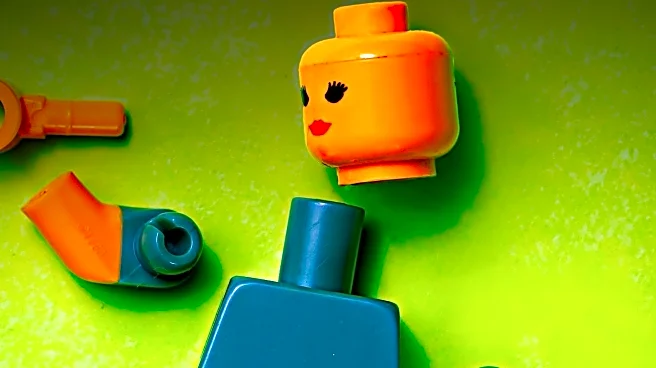What's Happening?
Lego has developed MRI scanner sets designed to alleviate anxiety in children undergoing medical procedures. These sets, which include a scanner, patient bed, waiting room, staff figures, and medical instruments, aim to familiarize children with the MRI process through interactive play. The initiative is part of efforts at Boston Children's Hospital to support the psychosocial and emotional wellbeing of pediatric patients. The sets mimic real MRI procedures, allowing children to engage with the process in a non-threatening manner. According to healthcare professionals, these sets have been effective in reducing anxiety and the need for sedation in children, with 96% of professionals noting a decrease in anxiety and 46% reporting reduced sedation requirements.
Why It's Important?
The introduction of Lego MRI scanner sets is significant as it addresses the common issue of anxiety in children facing medical procedures. By reducing the need for sedation, these sets not only improve the emotional experience for young patients but also potentially lower healthcare costs and risks associated with sedation. This development highlights the importance of innovative approaches in pediatric care, emphasizing the role of play in medical settings. The widespread use of these sets, with over 1 million children globally benefiting, underscores their impact on healthcare practices and patient experiences.
What's Next?
As Lego continues to distribute these MRI scanner sets, healthcare facilities may increasingly adopt them as a standard tool for preparing children for medical procedures. This could lead to broader implementation in hospitals worldwide, enhancing pediatric care practices. Additionally, further research and development may expand the use of similar educational tools for other medical procedures, potentially transforming the approach to pediatric healthcare and patient education.
Beyond the Headlines
The use of Lego MRI scanner sets also raises questions about the integration of play and education in healthcare settings. It suggests a shift towards more holistic and patient-centered care models that prioritize emotional and psychological wellbeing alongside physical health. This approach may influence future healthcare policies and practices, encouraging the development of more interactive and engaging tools for patient education.








